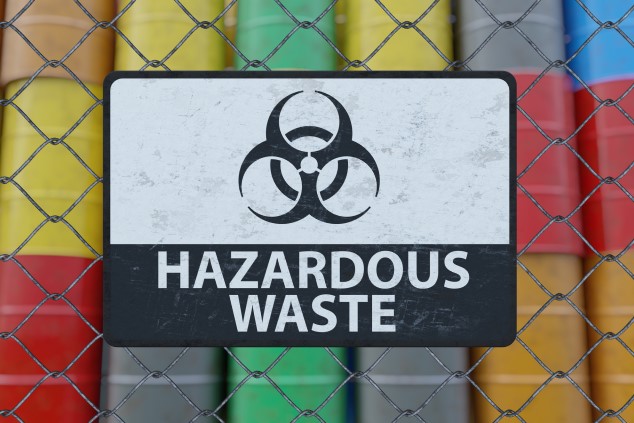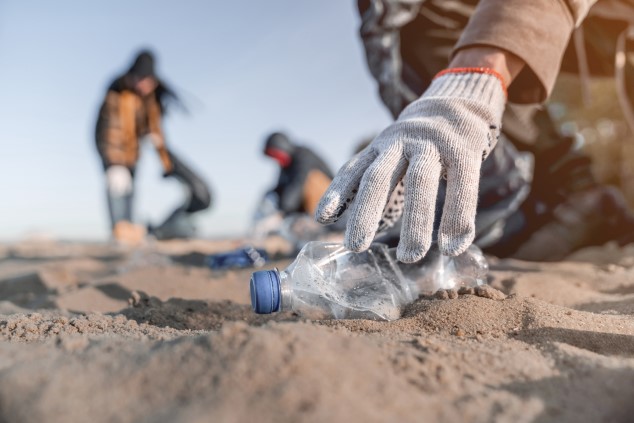After a long hiatus during the summer months, we’ve restarted our Sustainability Initiative. Find out below what the InterNations Team has done to tackle this topic in September!
Recently, the InterNations Team hasn’t just been busy preparing a global online festival to celebrate the 13th anniversary of our expat community. After the summer break, we have also renewed our focus on sustainability. The Sustainability Initiative — which this blog post has covered before — is an important part of our corporate culture, starting with our founders.
“To me, sustainability means living my life in a way that minimizes the impact we have on the environment,” says InterNations Founder & Co-CEO Malte. “Especially since having children, I want to leave this planet in such a state that it’s still worth living on for future generations. That’s why I’ve been trying to change my own behavior, both personally and professionally.”
Hitting an Important Sustainability Milestone
We have already reached a significant sustainability goal for 2020: InterNations is now officially a carbon-neutral company. We offset all CO2 emissions caused by our business activities by investing in climate protection projects. Climate Partner supports us in calculating, reducing, and offsetting our carbon footprint. That’s yet another reason to celebrate this month!
The original plan for our Sustainability Initiative in September, however, was to pick up where we left off before the long summer vacation. During our Zero Waste Month, we came up with various ways of reducing and avoiding waste, especially plastic waste, at home and at the office. Our current activities are all about answering the question of what happens to the waste that’s already there.
Is the World Turning into a Global Dumping Ground?
We started off with the “big picture” — an introduction to the history of waste. Our guest speaker was Jonas, a PhD candidate from the Rachel Carson Center for Environment & Society and member of a research group that specializes in the global impact of waste management.
The “Chemical Revolution” has led to the rise of an industry that we benefit from every day. The downside to this is the increasing amount of hazardous waste from consumer products, as well as manufacturing and industrial processes, which is notoriously difficult and dangerous to manage.

Waste management thus drew the attention of the environmental movement in 1970s West Germany. While this grassroots activism raised a lot of awareness, some of it is also an example of the “not in my backyard” attitude — local protests against a proposed development, which is then moved somewhere else. West Germany simply started shipping some of its waste to the GDR (East Germany), which lacked a strong civil society and needed the money from waste imports. This became the blueprint for the global waste trade.
Since reunification, Germany has made a huge effort to clean up the landfills from the Cold War. However, exporting waste to developing countries has now become commonplace. As soon as one destination starts refusing the waste, new dumping grounds emerge; it would take a lot of political will to break this vicious cycle.
Trash and the City: The First InterNations Team Cleanup
While Jonas provided a global and historical perspective, our next activity focused very much on the here and now — a few square meters in Munich. Inspired by World Cleanup Day (19 September), we met up at Königsplatz, a huge square right in the center of Munich, for the first InterNations Team Cleanup. It was hosted by Shireen, our guest speaker, who’d given up her career as a corporate project manager to become a self-employed sustainability consultant. In addition to her work at Ecolutionary, she’s also the founder of Green Canteen, a startup for healthy and organic canteen food.
So, we donned our gardening gloves, grabbed our trash bags and went to work. After scouring the shrubberies around Königsplatz for the better part of an hour, we’d all changed our minds about Munich being such a clean and affluent city. Unlike the party hotspots along the River Isar, where soda bottles and disposable plates predominate, some of the green spaces in Munich’s elegant museum quarter seem to have provided shelter for homeless people. Apart from the usual candy wrappers, used tissues, and cigarette butts, we also picked up discarded pieces of clothing, random items such as broken razors, and dozens of liquor bottles.

When our bags were full, we started sorting the trash to identify what could still be recycled (mostly glass, cans, and bottle caps) and to dispose of the rest where it belonged — in a bin. The sorting process provided a great starting point for discussing how to avoid waste. Some of the trash we found revealed a societal, rather than just an environmental issue — the growing number of homeless people in Munich. But the sorting process also gave us the opportunity to remind ourselves of the five R’s of the zero-waste movement (i.e. refuse, reduce, reuse, recycle, rot).
We also learned that sometimes, the smallest items can be the biggest offenders. Cigarette butts are usually not picked up by the city’s trash collectors because there are just so many of them. But they contain filters of non-degradable plastic, and the residual nicotine, a powerful insecticide, can pollute soil and water. So, that’s one more reason to finally stop smoking!
“This workshop was a really valuable experience,” says Sandra, one of our Senior Community Engagement Specialists. “Now I’m definitely paying more attention to how much trash, particularly cigarette butts, I spot when I take a walk. And such activities may even raise awareness among random passers-by.” In fact, some men smoking and chatting in the park joined us for a little while, an elderly lady stopped to thank us for our efforts, and a pre-teen girl listened attentively to Shireen’s lecture and approached her with questions afterwards.
“After cleaning up for about an hour, I also have a lot of respect for the people who do this professionally every day,” adds Public Relations Manager Stephanie. “It is hard work, and it must be rather frustrating because the trash just keeps on coming.”
The InterNations Changemakers Take Action
But we weren’t the only ones to get our hands dirty this month. A huge thank you goes to all members who joined the World Cleanup Day activities with their local InterNations Changemakers Group, our community outreach program for expats and global minds!
For example, the Duesseldorf Changemakers helped tidy up the banks of the Rhine as part of a larger community effort. This year, 35,000 people in 400 different locations did their part to keep one of Europe’s largest rivers clean. And the Amsterdam Changemakers made sure that local residents continue to enjoy the city’s green spaces by fighting littering in Westerpark, a popular place for sunbathing in summer and ice-skating in winter. Judging from their feedback, they seem to have encountered similar problems as the InterNations Team in Munich — namely, heaps of plastic bottles and cigarette butts.

“I really think that World Cleanup Day is a great initiative. You can immediately see the positive impact you have,” says InterNations Founder & Co-CEO Malte. “But it should also inspire you to change your daily habits, which is even more important than a one-time action.” For instance, he always spends his summer vacation in the same seaside resort, where he often finds himself picking up trash on the local beaches. “I just want to be a good role model for my children and show them how important it is to respect our environment.”
Coming Soon: A Talk with Our Local Waste Manager and a Global Ranking
We have scheduled one more activity for our themed month: On Wednesday, we’ll discuss how AWM, Munich’s waste-management service, deals with whatever ends up in the city’s public spaces, in our garbage cans, and at local recycling centers.
Their marketing manager Frederic will be hosting a virtual Q&A session for our team. It should be intriguing to dig deeper into some of the topics from Jonas’s lecture and Shireen’s hands-on workshop. We’ll get answers to questions like, how does AWM handle hazardous waste? How much of the trash in the recycling containers actually gets recycled? And how can we get rid of those pesky cigarette butts on our sidewalks? We’re definitely curious to learn more. Who knew that trash could be that exciting?

If you’re not only interested in what the InterNations Team does about sustainability but also in what expats think about the topic, you should check out our Expat Insider website. On 30 September, we’ll publish our first Environment & Sustainability Report, covering 60 expat destinations worldwide. Spoiler alert: The best rating for waste management and recycling goes to a Northern European country — you’ll find out soon which one!
Image and video credits: Climate Partner / InterNations / iStockphoto